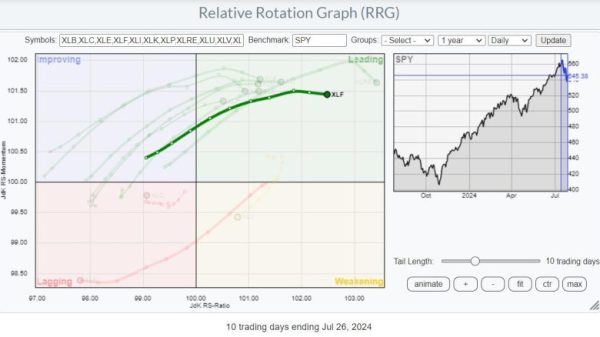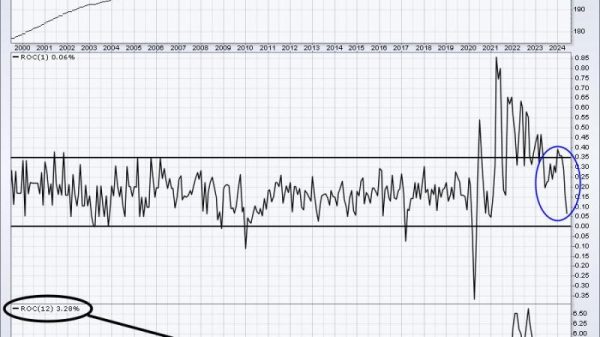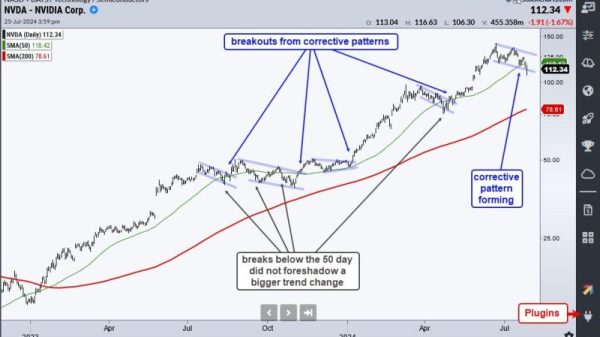President Biden and his top aides are closer to a breach with Israeli Prime Minister Benjamin Netanyahu than at any time since the Gaza War began, no longer viewing him as a productive partner who can be influenced even in private, according to several people familiar with their internal discussions.
The mounting frustration with Netanyahu has prompted some of Biden’s aides to urge him to be more publicly critical of the prime minister over his country’s military operation in Gaza, according to six people familiar with the conversations, who spoke on the condition of anonymity to discuss internal deliberations.
The president, a staunch supporter of Israel who has known Netanyahu for more than 40 years, has been largely reluctant to take his private frustrations public so far, according to the people. But he is slowly warming to the idea, they said, as Netanyahu continues to infuriate Biden officials with public humiliations and prompt rejections of basic U.S. demands.
Netanyahu has angered U.S. officials on several occasions in just the past few days. He publicly denounced a hostage deal while Secretary of State Antony Blinken was in the region trying to broker an agreement. He announced the Israeli military would be moving into the southern Gaza city of Rafah, a move U.S. officials have publicly opposed, since Rafah is packed with about 1.4 million Palestinians living in squalid conditions who fled there under Israeli orders.
Netanyahu also said Israel would not stop fighting in Gaza until it achieves “total victory,” even as U.S. officials increasingly believe his stated goal of destroying Hamas is elusive.
For now, the White House has rejected calls to withhold military aid to Israel or impose conditions on it, saying that would only embolden Israel’s enemies. But some of Biden’s aides argue that criticizing Netanyahu would allow him to distance himself from an unpopular leader and his scorched-earth policies while reiterating his long-standing support for Israel itself.
Biden’s private frustration with Netanyahu — which has been building for months — was on display Thursday when he said Israel’s military campaign in Gaza has been “over the top,” his sharpest rebuke yet.
The president also spoke in far more detail about Palestinian suffering, as well as the time and energy he has expended trying to get the Israelis and Egyptians to allow more aid into the 25-mile enclave. “A lot of innocent people are starving,” Biden said. “A lot of innocent people are in trouble and they’re dying. And it’s got to stop.”
A particular flash point is Israel’s plan to launch a military campaign in Rafah, the southern most city in Gaza that borders Egypt and has swollen to more than four times its original size. “They’re already living in tents and not getting enough food and water and you’re saying go somewhere else,” said one outside adviser to the White House. “Where? How are they supposed to get there?”
This article is based on interviews with 19 senior administration officials and outside advisers, many of whom spoke on the condition of anonymity to speak about private deliberations.
White House aides say publicly that there has been no change in Biden’s strategy or message.
But many of his allies contend that even a sharp rhetorical shift will have little effect unless the United States starts imposing conditions on its support for Israel.
“So long as you are supporting Netanyahu’s military operation in Gaza without condition, it makes absolutely no difference how much you turn the dial in your comments,” said Ben Rhodes, former president Barack Obama’s deputy national security adviser. “Fundamentally, you have to make a decision not to give Bibi a blank check of support.” (“Bibi” is a common nickname for Netanyahu.)
Israel launched its punishing military campaign in response to a brutal Hamas attack on Oct. 7, when militants rampaged through the Israel-Gaza border fence and murdered 1,200 people, many of them civilians, and took about 253 hostage. Since then, Israeli airstrikes and raids have killed more than 28,000 Palestinians, according to the Gaza Health Ministry, and displaced more than 80 percent of Gaza’s 2.3 million residents, as a siege of the enclave has created a humanitarian catastrophe.
The White House has taken modest steps in recent days to signal its growing frustration. Biden issued a national security memorandum aimed at ensuring that countries receiving U.S. weaponry abide by certain guidelines, including not obstructing humanitarian assistance.
Biden also issued an executive order earlier this month sanctioning four West Bank settlers for violence against Palestinians, a move Netanyahu griped about during a private meeting with Blinken last week, officials said. And on Thursday, National Security Council spokesman John Kirby said an Israeli operation in Rafah “would be a disaster for those people, and we would not support it” — the most forceful the White House has been in opposing an Israeli military operation.
Some of the president’s aides have argued Biden can still support Israel while denouncing Netanyahu. But Biden, who aides say has a visceral attachment to the Jewish state, has tended to view the prime minister and the state of Israel as one and the same, according to several people familiar with his thinking, and has struggled with the idea of criticizing a sitting prime minister, particularly during a time of war.
When he was vice president, Biden believed Obama and Netanyahu had too many public disagreements, according to two former Obama officials.
Yet Biden’s patience is wearing thin over how Israel has conducted its military campaign — and he is also paying a growing political price for his embrace of Israel, even as Netanyahu appears eager to score his own political points by publicly snubbing Biden. As Biden heads into a hard-fought reelection campaign, polls shows that young voters, people of color, Muslims and Arab Americans strongly disapprove of his handling of the war.
U.S. officials for months have pressed the Israelis to allow more humanitarian aid including food, water and medicine into Gaza but have faced repeated resistance from Netanyahu and his government. Israeli protesters have also been blocking aid trucks from getting in through the country’s Kerem Shalom border crossing with Gaza.
A senior administration official who speaks with the president regularly said Biden’s unusually sharp comments Thursday reflected what he has long been saying in private.
“I don’t think anybody can look at what the Israelis have done in Gaza and not say it’s over the top,” the official said. “This gets to the frustration with the Israelis. Have they done the work on what comes next in Gaza? No. They haven’t grappled with the really hard questions.”
Biden cares deeply about getting more humanitarian aid into Gaza, the official said, adding that it is “constantly on his mind” and he is frustrated by the obstacles Israel is putting up. “Everything is a daily struggle,” the official said.
Adding to U.S. officials’ frustration is their deep skepticism about Israel’s ability to achieve its stated goal of total military victory.
In a closed-door briefing last week, U.S. intelligence officials told lawmakers that while Israel had degraded Hamas’s military capabilities, it is not close to exterminating the group more than 100 days into its campaign, said officials familiar with the briefing, which was first reported by the New York Times.
U.S. leaders are skeptical of Netanyahu’s claim that he has destroyed two-thirds of Hamas’s fighting regiments, and they warn that the high levels of civilian casualties are ensuring that a radicalized population will live adjacent to Israel for decades to come.
In the immediate future, U.S. officials are almost entirely focused on securing a deal that would see the release of many of the remaining 130 Israeli hostages in Gaza in exchange for Palestinian prisoners and a long-term pause in the fighting.
White House officials said a temporary cease-fire would allow them to surge desperately needed humanitarian aid into Gaza. They also hope it would provide space to begin grappling with the most difficult questions ahead, including who will govern Gaza, how to pave the way for a Palestinian state and how to reform the Palestinian Authority, which governs parts of the West Bank.
White House officials have increasingly concluded that Netanyahu is focused on his own political survival to the exclusion of any other goal, and is eager to position himself as standing up to Biden’s push for a two-state solution. During a news conference last month, Netanyahu publicly rebuked Biden over his support for a Palestinian state, saying an Israeli prime minister needs to be “capable of saying no to our friends.”
“Netanyahu is playing to his politics at home, and if he thinks it helps him to trash Biden publicly, he’ll do it,” said Frank Lowenstein, a former State Department official who helped lead Israeli-Palestinian negotiations in 2014.
One of the biggest reasons Biden has not been quicker to criticize Netanyahu, aides say, is his decades-long relationship with the prime minister. Biden often says he tells Netanyahu, “I love you, Bibi, even if I can’t stand you.”
Netanyahu has at times helped reinforce Biden’s view of Israel as a heroic bulwark against global antisemitism. During one visit when Biden was vice president, Netanyahu showed him photos of grossly antisemitic depictions that came from Hamas and argued such incitement was the reason he could not make peace with the Palestinians, according to a person familiar with the interaction, speaking on the condition of anonymity to describe a private exchange.
As Biden’s frustration grows, he has spoken less frequently with the Israeli leader. Their last conversation, in mid-January, was largely focused on the potential hostage deal, according to a senior administration official familiar with the conversation.
Biden pressed Netanyahu to “put down an offer on paper and test Hamas,” the official said. The president then spoke to Egyptian President Abdel Fatah El-Sisi and Qatari Emir Tamim bin Hamad Al Thani, urging them to pressure Hamas so the two sides could get closer to an agreement.
Against that backdrop, the president and his aides were livid when Netanyahu publicly rejected the latest hostage proposal from Hamas last week — just hours after Blinken, who was in Israel for the fifth time since the war began, said it held promise.
“Surrender to the ludicrous demands of Hamas — which we’ve just heard — won’t lead to the liberation of the hostages, and it will only invite another massacre,” Netanyahu said.
Hours later, Blinken offered his most pointed criticism to date of the high civilian death toll in Gaza, Israeli restrictions on aid and inflammatory rhetoric from Netanyahu and his ministers that he said causes “profound concerns” in the United States.
“The daily toll that its military operations continue to take on innocent civilians remains too high,” Blinken told reporters at a news conference in Tel Aviv on Wednesday. “Israelis were dehumanized in the most horrific way on October 7. The hostages have been dehumanized every day since. But that cannot be a license to dehumanize others.”





























